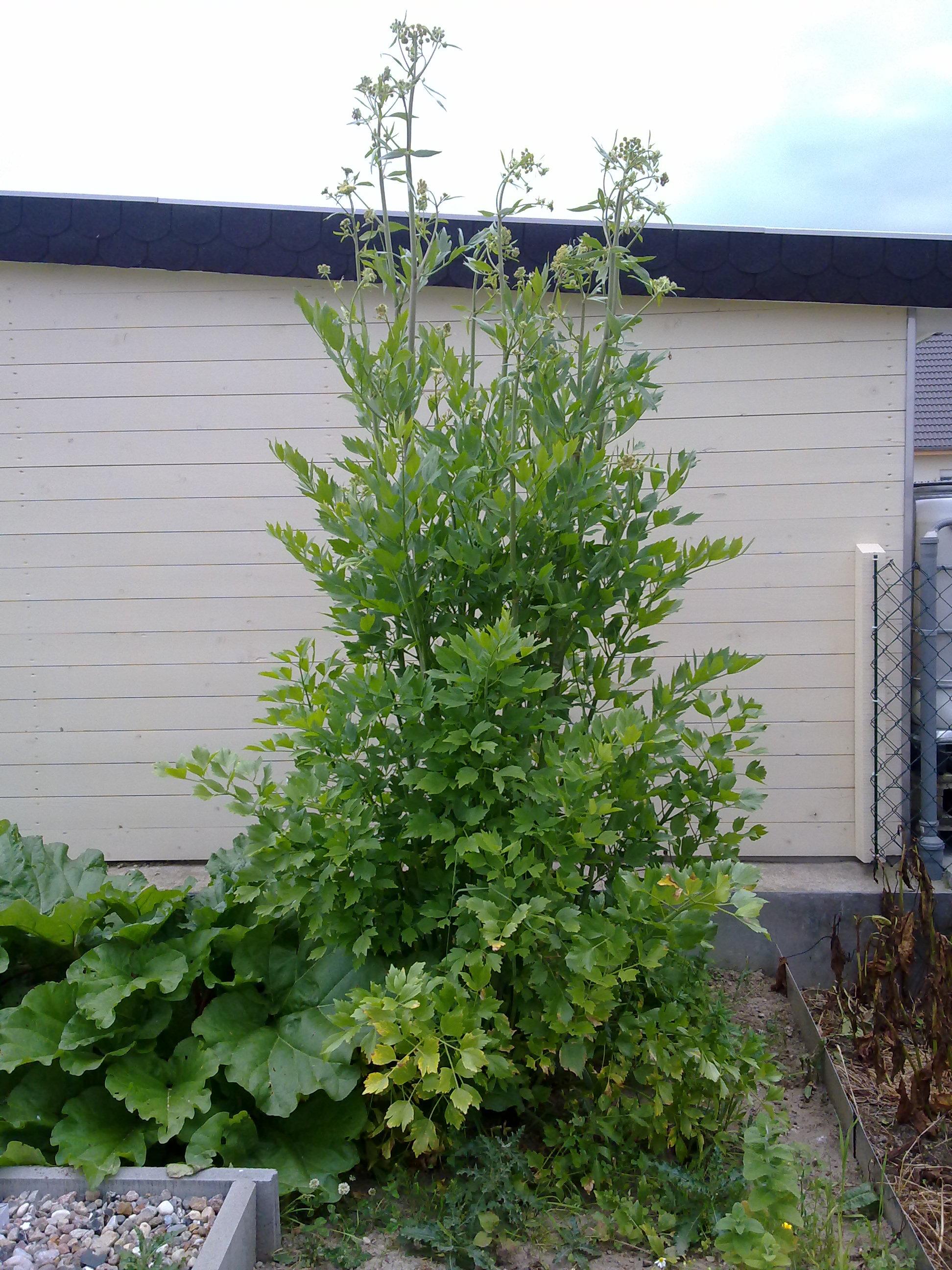
Lovage (Levisticum officinale)
Lovage, also known as Lovage, Maggi plant
**Benefits:**
1. **Culinary Uses**: Lovage, with its robust, celery-like taste, can elevate the flavor of soups, stews, and salads. Both its leaves and stems are edible.
2. **Attracts Pollinators**: The plant's summer-blooming yellow flowers draw bees, butterflies, and other beneficial insects, enhancing garden pollination.
3. **Wildlife Appeal**: Birds are attracted to lovage seeds, adding to garden biodiversity.
4. **Hardy Growth**: Lovage is a hardy perennial that thrives in various soil types, making it an easy addition to most gardens.
**Potential Risks:**
1. **Toxicity Concerns**: Some parts of the plant are considered toxic and may cause adverse effects if consumed in large quantities.
2. **Diuretic Effects**: Lovage can increase urination, which may be problematic for individuals with certain health conditions or those taking specific medications.
3. **Skin Sensitivity**: Handling the plant can cause skin irritation or photosensitivity due to its chemical compounds.
4. **Invasive Potential**: If not properly managed, lovage can spread aggressively and dominate garden spaces.
Consult a healthcare professional before using lovage for medicinal purposes and exercise caution when incorporating it into your diet.